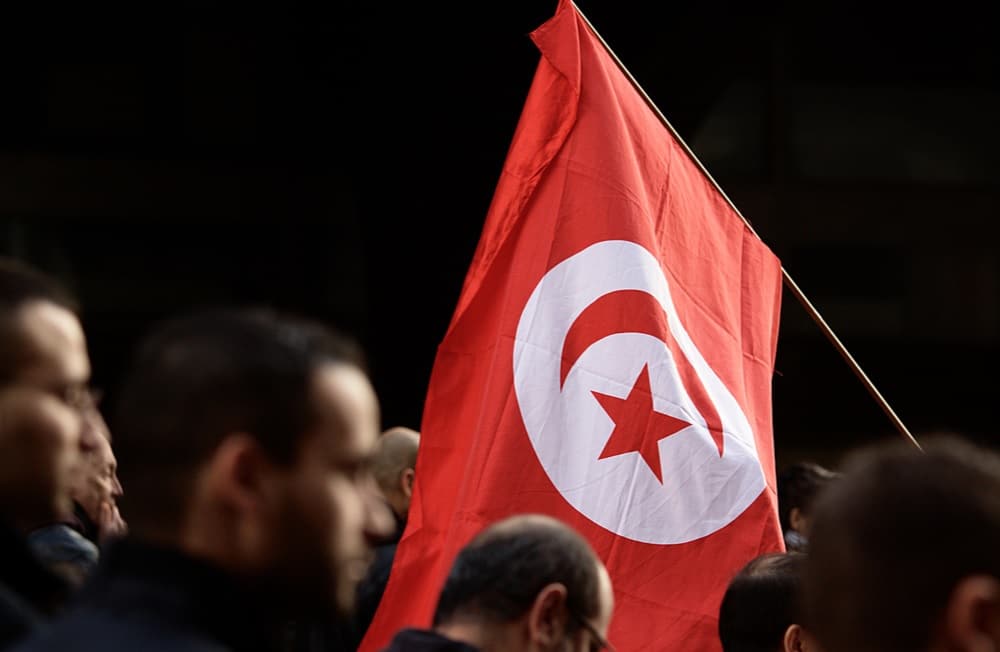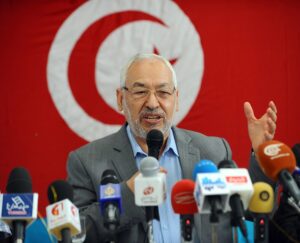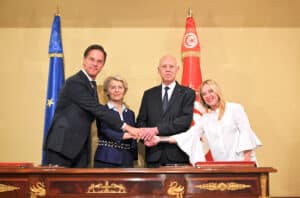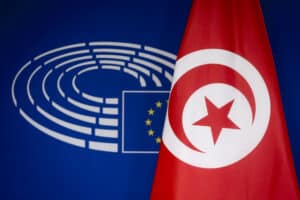Last Monday marked Tunisia’s 8th anniversary of the revolution which drove former President Zine El-Abidine Ben Ali away. This day should have been a day of celebration, but most Tunisian citizens feel betrayed and are angry about the unfulfilled promises of the revolution. Thousands of people gathered in Tunis, the capital of Tunisia, to express their anger about the limited achievements since the revolution in 2011.
Revolution
Trigger for the revolution eight years ago was the dead of a 26 year old man, Mohamed Bouazizi. After being humiliated by the police, Bouazizi set himself on fire in front of a government building. His act was seen as an act of desperation and this desperation spread throughout the country. Also back then people were angry about the economic stagnation, unemployment, corruption, lack of democracy, food inflation and poor living conditions. Former President Ben Ali tried to suppress the protests and clashes between police and demonstrators took place. Ben Ali was not able to stop the protests and after being in power for 23 years, he resigned on 14th of January after 28 days of protests. Elections followed and since 2011 Tunisia has had nine governments and according to the protesters each government failed to respond to the protesters and revolutionaries’ concerns.
Reforms
Tunisia is considered to be the only successful country in the Arab Spring revolutions, mainly in terms of democracy. It held free and fair elections and different reforms are being implemented, but the economic challenges, such as youth unemployment, remained. Economically the country seemed not to improve since the revolution, but since 2017 slow economic growth is taking place, but it is still not inclusive. Most citizens do not profit from the (slow) progress that is being made. Moreover, Tunisia is in a difficult position between international lender, IMF, and domestic interest groups, such as the powerful labour unions. In order to receive a loan from IMF the Tunisian government needs to make adequate progress, otherwise the installment will be frozen. Therefore, the government needs to fulfill the demands of IMF, but at the same time it tries to listen to the labour unions and opposition, otherwise protests are looming.
Protests
In December a journalist set himself on fire as protest over social conditions in Tunisia. The incident is a reminiscent of Bouaziz which triggered the revolution in 2011. As result on the death of the journalist in December, clashes erupted between Tunisian protesters and security forces. Despite the efforts of the government and the democratic transition since the revolution, the government still struggles to improve the living conditions and protests are often appearing, especially around and during the anniversary of the revolution.
Critique
The current President, Beji Caid Essebsi, opened on the anniversary of the revolution an exhibition on the revolution and urges all parties, opposition and unions, to work together in order to avoid unrest. He stressed that a general strike, which is announced by the biggest labour union, UGTT (in French: Union Générale Tunisienne du Travail), only hurts the already fragile economy. He also stated that a democracy cannot be built in eight years and that it takes time. The President is facing a lot of critique since the IMF reforms are being implemented, but the President himself does not support these reforms either. It is the Prime Minister, Chahed, who is in favor of the IMF reforms, together with Ennahda.
The strike of the 17th of January will be held despite the continuation of the dialogue with the government, about the demands for higher wages for the public sector. The UGTT reflects in the light of the commemoration of the 8th anniversary of the Tunisian Revolution back on the past years. UGTT finds that not that much is changed since the revolution and some things even got worse. Injustice and regional disparities are still the reality. According to them, there is more unemployment, marginalization, corruption and exclusion. Most of their critique is focused on the increase of the interest rate and on the financial law which they consider to be unfair. In 2018 protests already broke out due to the new financial law which also included a tax raise on gasoline, housing, internet use, hotels and food. The UGTT warns for the increasing inflation and the decline of foreign currency. The end their reflection with a call to join the general strike.
Besides UGTT, also different political parties expressed their opinion. Ettakatol, Democratic Forum for Labour and Liberties, stresses the necessity of continuing to focus on the foundations of the Second Republic. They want the executive and legislative branches to take their responsibility and reform the Electoral Commission to guarantee successful elections. The Popular Front, a leftish coalition made up nine political parties, expressed its support for those who protest for better employment and social justice.
The political and economic problems are not going to be solved in the near future, but the citizens keep hoping for change and are not afraid to take the streets if they disagree. Tunisia will be holding Presidential and parliamentary elections by the end of this year.
Sources: Aljazeera, Independent, Middle east monitor, Tap.info, Tap.info II, Tap.info III, Washington post
Photo: Flickr



